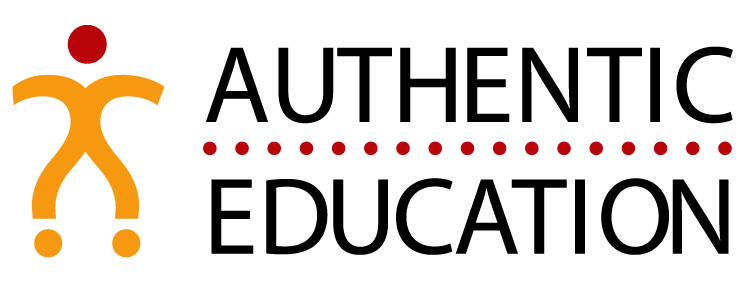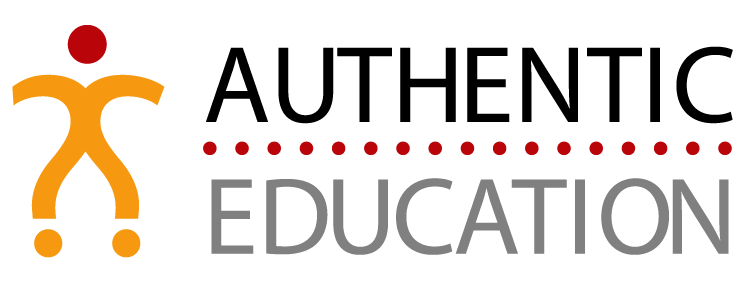Stephen Lazar has written a perfectly nice article on how to use good questions and inquiry to teach history. But how depressing that something so obvious, so often said over the last 75 years, should be an article in a national educational publication! Is there NO memory in this field? Are we to assume that each new crop of teachers knows nothing about inquiry? Are we doomed to reinventing the wheel in every classroom every generation?
I can think of many dozens of resources that have focused on good questioning in my 40 year career (especially in the social sciences), starting with Bruner and Taba, and including countless articles and books written by Dave Perkins, Richard Paul, Barry Beyer, Art Costa, Jamie McKenzie, Lynn Erickson, and Heidi Jacobs – not to mention the work in inquiry-based history over the past decades such as History Alive and Facing History, Facing Ourselves, all the way back to Edwin Fenton’s research and inquiry-focused materials in the 60s; or my extensive output on framing learning via questions, beginning in the 1980s and through all the Understanding by Design books with Jay McTighe in the past decade in which we highlight Essential Questions.
Let’s face it: education is not a profession. If it were a profession, we could – and should – presume that people are educated in the basics of Best Practice, including (especially) how to deepen the work and engage students via good questions – especially in high school history.
My rant is not a knock on Lazar: the article is perfectly fine: clear, concise, helpful in how to improve US history class. But that the article is deemed newsworthy in 2011 is pretty sad stuff. Next, we’ll be seeing articles in print about the value of engaging students in hands-on work or research that suggests that students do better when the work is personalized….
PS: can we also PLEASE stop using the phrase 21st century skills? None of this is new and it insults the intelligence of the public to make it sound new. The skills in question – critical and creative thinking, collaboration, use of technology – were 18th 19th and 20th century skills, too.

Categories:
Tags:



15 Responses
I’m afraid this post is right on target. Rant as it is, many of us hear the same Dewey-esque terms and comments being resurrected as though they were fresh as the Dew on this morning’s lawn.
It’s great that we are tuning our dials to important concepts. But a sad commentary that we don’t recognize the Golden Oldies when they play.
Let’s transcend the cliches — put good ideas into practice — look for colleagues who have students’ best interest in mind — and hope we can Learn/Unlearn/Relearn (I think that’s Toffler, about 1970 or so)….
Toffler’s writing was remarkably prescient in Future Shock. I recommend that everyone go back and read what he had to say about the ‘future’ of education.
I agree with the gist of your “rant’. What I am wondering is this . . . if this article describes best practice in the teaching of history/social studies, why aren’t teachers teaching this way? Is that why we need to publish articles about strategies/methods that have been around for awhile . . . because teachers aren’t actually using those strategies? Any thoughts?
This is really the 64,000 dollar question, isn’t it? I know from years of experience that many teachers do not read extensively in their field – that’s certainly a part of it. But that then begs another question: why not? I wish I knew. It can’t help that many teachers do not come from the top of their college classes, but it seems to be something deeper – as if teachers don’t believe that there is existing research or a record of past success that applies to them. It no doubt relates to poor pre-service training. But that doesn’t explain a continuing lack of being informed.
Interestingly, and sadly, I am in the midst of a home renovation. I asked the electrician – how do you guys keep up with changes in building code and such. He said – we have to be re-certified every 3 years and tested on our knowledge! Jeez, we demand more of electricians than educators….
The solution is not going to come from colleges, in my view. It has to be part of employment and advancement standards in the school/district. It has to be mandatory, not optional, to keep informed.
Amen!! Thank you for the reply.
I am an educator, in my 8th year of teaching elementary school. Teachers also have to re-certify–every 5 years. Why aren’t we up on everything? We are constantly learning while we are teaching. There is never enough time to keep up with the day-to-day aspects of our job. We are overworked and under-appreciated. Please support us. There is always a “new” method or “better” this or that coming at us at all times. Everything in education is a swinging pendulum. We learn best from each other. What really needs to change is the education programs in the universities. They do not begin to prepare teachers appropriately. We actually learn more once we are thrust into the overwhelming environment called “education.” I even answered a survey from my university on what they could have done better in preparing me….I honestly answered back and was never contacted again…..
I think relevant to the question of “Why aren’t teachers teaching this way” has to do much with the fact that we have difficulty even agreeing on the purposes of education in the first place.
I am a history teacher rooted in a historical thinking approach as described by Lazar. However a cursory glance at the history of history education in the USA and Canada reveals continually shifting purposes, from a uniting national narrative, to citizenship education, to critical (in particular, historical thinking) thinking (this is particularly the case in regards to the nebulous concept of “social studies”). When the goalposts move, than the tactics to achieve that elusive target shift with the winds of change as well.
Sincerely,
Nathan
Yes, I do believe we will continually have to reteach new generations of teachers unless teacher preparation programs including alternative ones step up with more requirements and expectations of performance clearly spell out best practices.
I agree with you 100%, but I confess to being part of that woefully ignorant generation of teachers. I hesitate to admit this, but I still haven’t read many education books that are considered central to the practice. Partly this is because I don’t have a good method for knowing which ones to read. If there were a list of the ten best-practice books every teacher had to have read, I’d read it. But lately I’ve been trying to make my way through the shelf of professional trade books in our school library, and I can’t separate the wheat from the chaff without reading them. Books that are best-sellers and sound great are often poorly written and have little substance. Books that I’ve heard are hugely important to teaching often read so dry and technical that I find myself putting off the reading more and more. I have so little time for outside reading as it is, I wish I had a master teacher or mentor who could aid me in this (can we bring back the old Greek philosophers and hire them for this in education?)
Worse, administrators in schools are often less versed in these resources than we are. So where are good, inquisitive teachers meant to go to find the best resources and course of study without going back to Ed School?
Here’s a proposal: Why don’t you wrote the quintessential must-know, best-practice book for teachers? Here are the twelve things every single teacher must know about or how to do before she sets foot in the classroom. Include a list of the must reads, a cheat sheet and the key philosophies and practices (Bloom’s taxonomy, Socratic seminar, etc.). You could write the wikipedia book of best practice for educators. At the very least, it could be a starting point off of which all schools and teachers could build.
What a great challenge!! I’ll make a brief stab at a list of essential readings in education, but tweet the query to the wider world before turning it into a full post soon.
I would propose five books as essential readings in the “modern” era of education (in which “modern” refers to the 20th century to the present):
Democracy & Education, John Dewey
The Moral Judgment of the Child, Jean Piaget
The Basic Principles of Curriculum and Instruction, Ralph Tyler
The Process of Education, Jerome Bruner
Taxonomy, Bloom et al
In addition, I think every educator should read Plato’s “Allegory of the Cave” from the Republic since it arguably lays the foundation of modern education.
Readers, your thoughts?
[…] prompted today’s column on the classic texts every educator should have read. In a reply to an earlier post of mine on how we keep reinventing the wheel in education, she […]
Hello to all and Mr. Wiggins. The real question is why the existing frameworks for questioning have not resonated strongly with teachers. Consider that Bloom’s Taxonomy is well-known by teachers but has usually not resulted the in implementation of well-scaffolded questions in every lesson by most teachers. I have a supposition for that, but my overall point is that’s the question to be asking…
Agreed. It is astonishing, really, that 60 years after Bloom – arguably the most widely-referenced material in our field – teachers don’t routinely plan via the taxonomy. And a propos my complaint that people don’t read, I’ll bet dollars to donuts that 1% of the people who use the Taxonomy have never read the book in which it is explained and justified. Most people have just seen the brief handouts on the levels.
Yeah, pretty depressing, ha. Thanks for that this Wednesday. If you happen to have a Kindle or iPad, I’d like to send you my book on questioning strategies, “Classroom Questioning 101: A Pedagogy for Asking Better Questions” via a file attachment for either device. It’s very strange to be in a field where a substantial element of instruction is so disregarded; questioning is one of the few means of communication/teaching (lecture; modeling; experience; experiment; combinations thereof).
I like your blog. Odd how few educators actually express their opinions robustly, as if they are afraid of their own thoughts.
IVAN HANNEL
ivan@k12workshops.com
Well Ivan, I will be presenting your ideas of questioning to my staff this week–explaining HEQ, giving them an example (on them), and giving them the how-to on ways to question better. I attended one of your workshops in 2007. I have since moved to another city and district and passed the book/workshop book onto my superintendent, who loved it. I also showed it to my school principal–who has now asked me to present to our elementary school staff. So hopefully better questioning in schools will increase : )